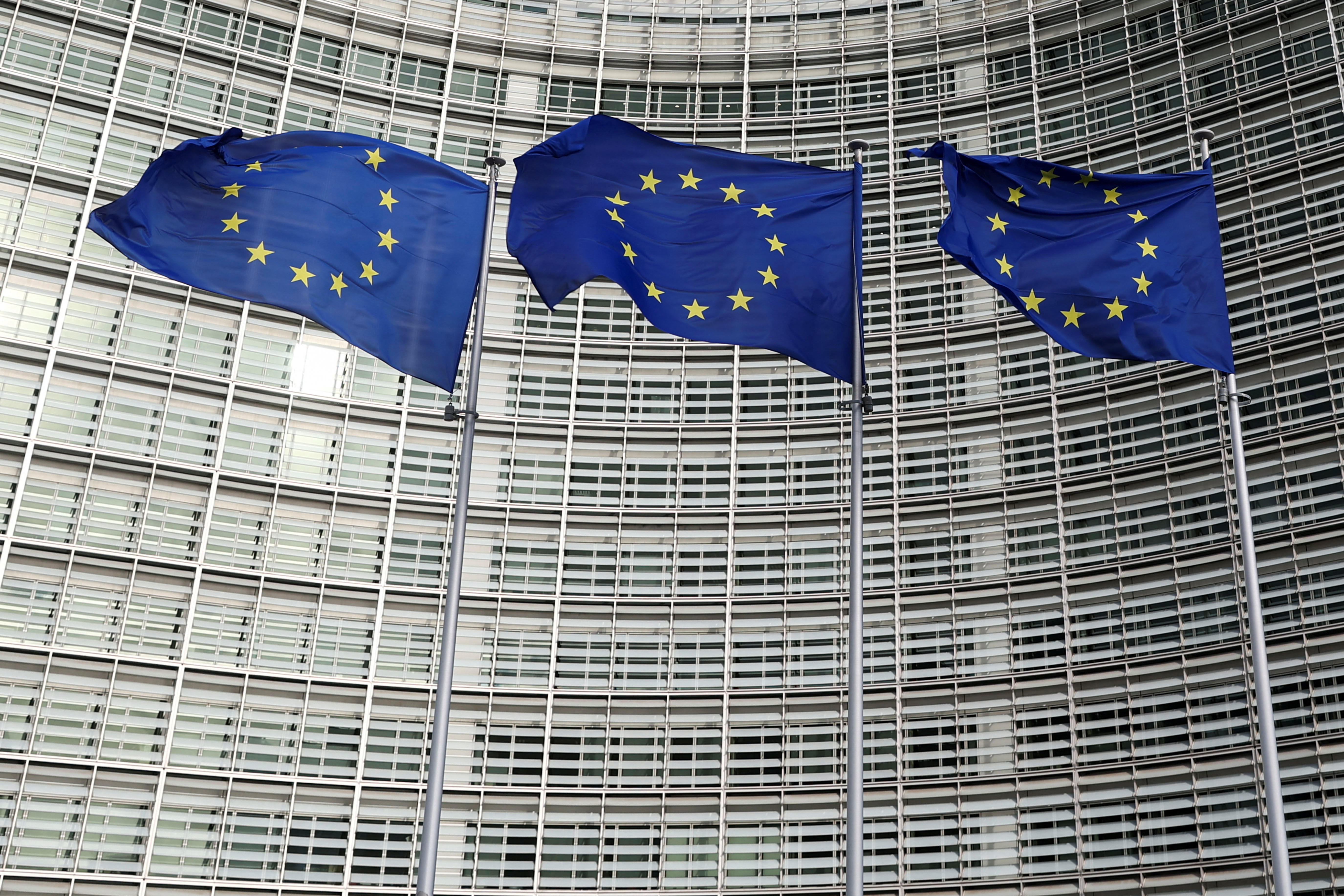

European Union flags fly outside the European Commission in Brussels, Belgium November 8, 2023. REUTERS/Yves Herman/File photo Acquire Licensing Rights
LONDON, Nov 8 (Reuters) – The European Union’s banking watchdog set out proposals on Wednesday requiring that from June issuers of stablecoins backed by currencies to have sufficient funds to fully redeem investors.
The bloc is deploying the world’s first comprehensive set of rules for cryptocurrency and stablecoin markets, and the European Banking Authority (EBA) proposed minimum capital and liquidity requirements for issuers of stablecoins and other types of digitised tokens.
The EBA launched public consultations on liquidity requirements for the reserve of assets that back a stablecoin, meaning that only eligible assets of high enough quality can be used.
The aim is to ensure that the assets can be quickly sold to raise cash for paying redemptions even in stressed markets, key to stopping runs and contagion in a crisis.
The EBA said that issuers of stablecoins backed by a currency must be able to offer full redemptions at par to investors.
Stablecoins backed by an asset such as gold, would only have to offer redemptions at the going market price for the asset at the time of redemption.
“Following application of the guidelines, the supervisor may strengthen the liquidity requirements of the relevant issuer to cover those risks based on the outcome of the liquidity stress testing,” EBA said in a statement.
Banks may be exempt from liquidity requirements in some instances, given that they already hold liquidity buffers under existing EU bank capital and liquidity rules, the EBA said.
The proposed liquidity rules ensure that issuers of stablecoins, which can be non-bank institutions, meet the same safeguards, and also avoid unfair capital or liquidity advantages over banks.
All the proposals have been put out to public consultation for three months, with a public hearing on Jan. 30.
Earlier this week, Britain’s financial regulators set out initial proposals for regulating stablecoins in the first leg of UK rules for the crypto sector.
Reporting by Huw Jones, Editing by Louise Heavens
Our Standards: The Thomson Reuters Trust Principles.






